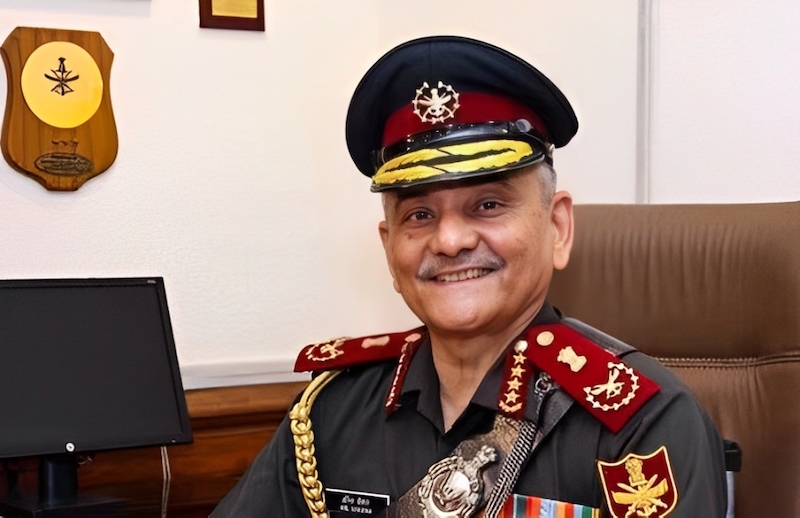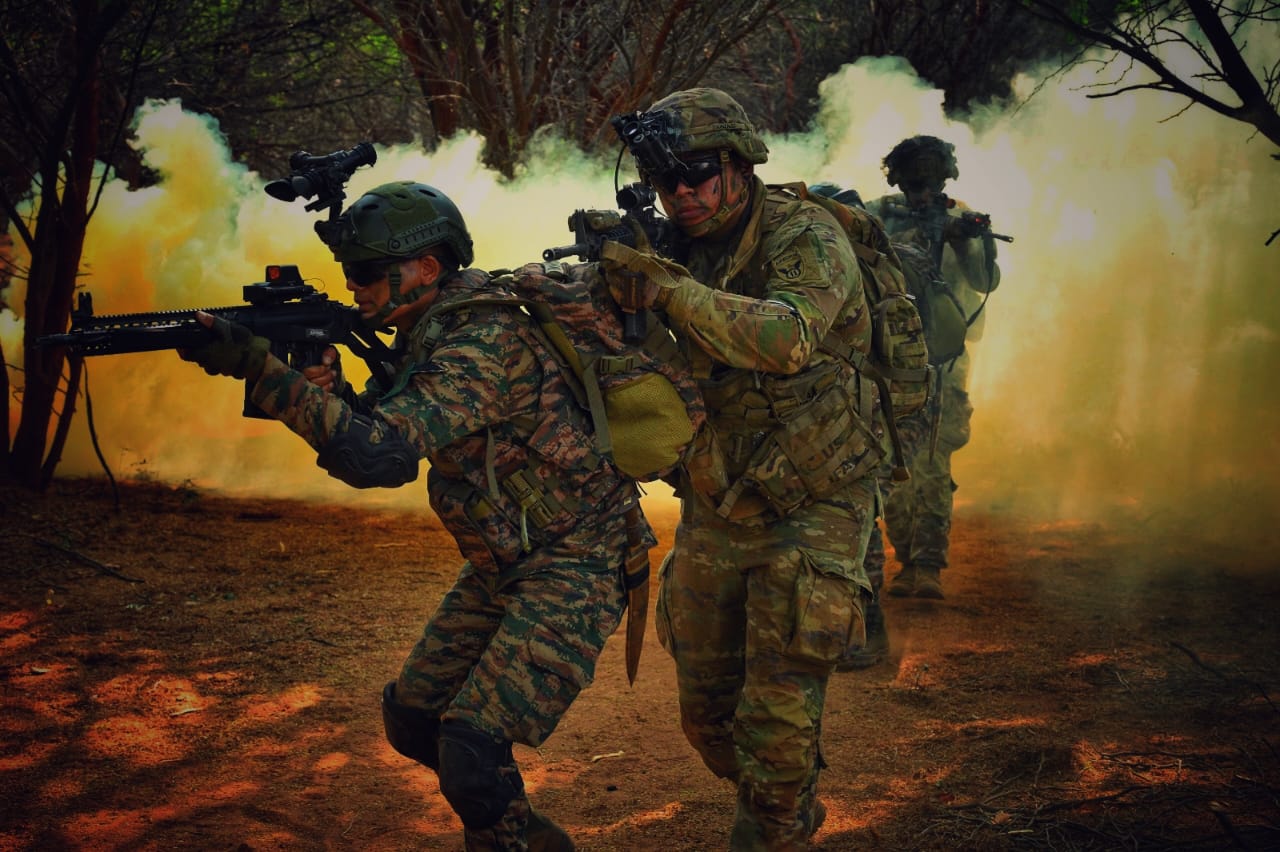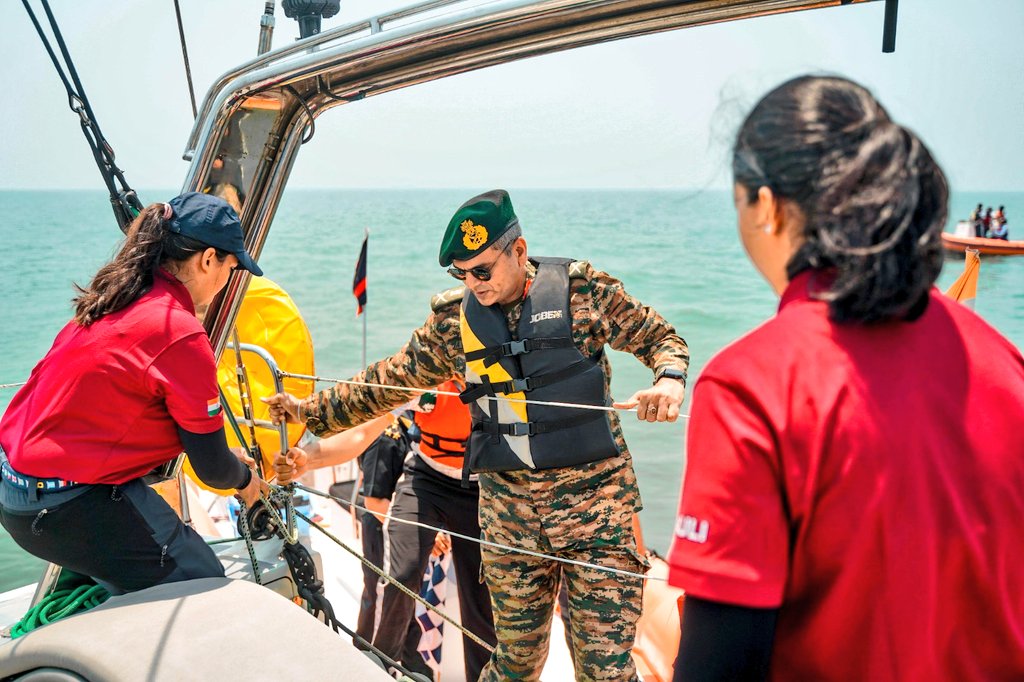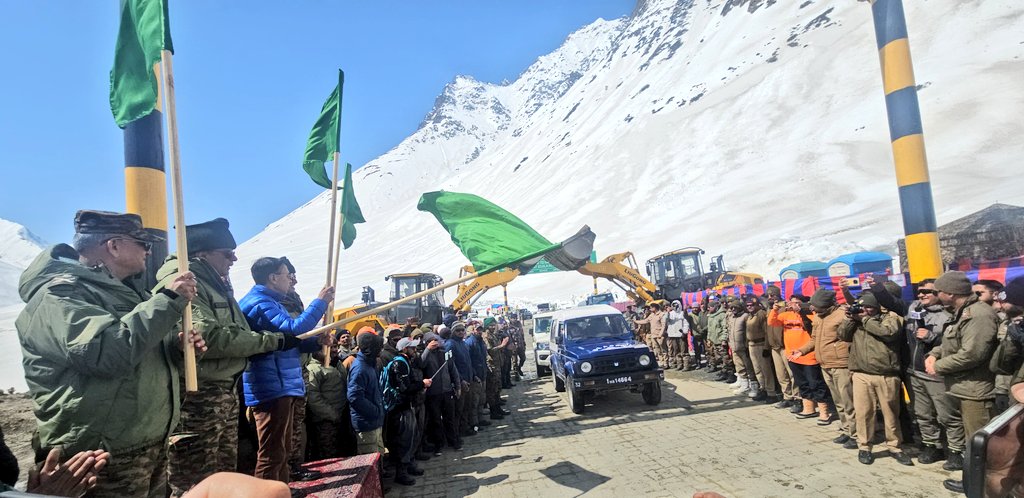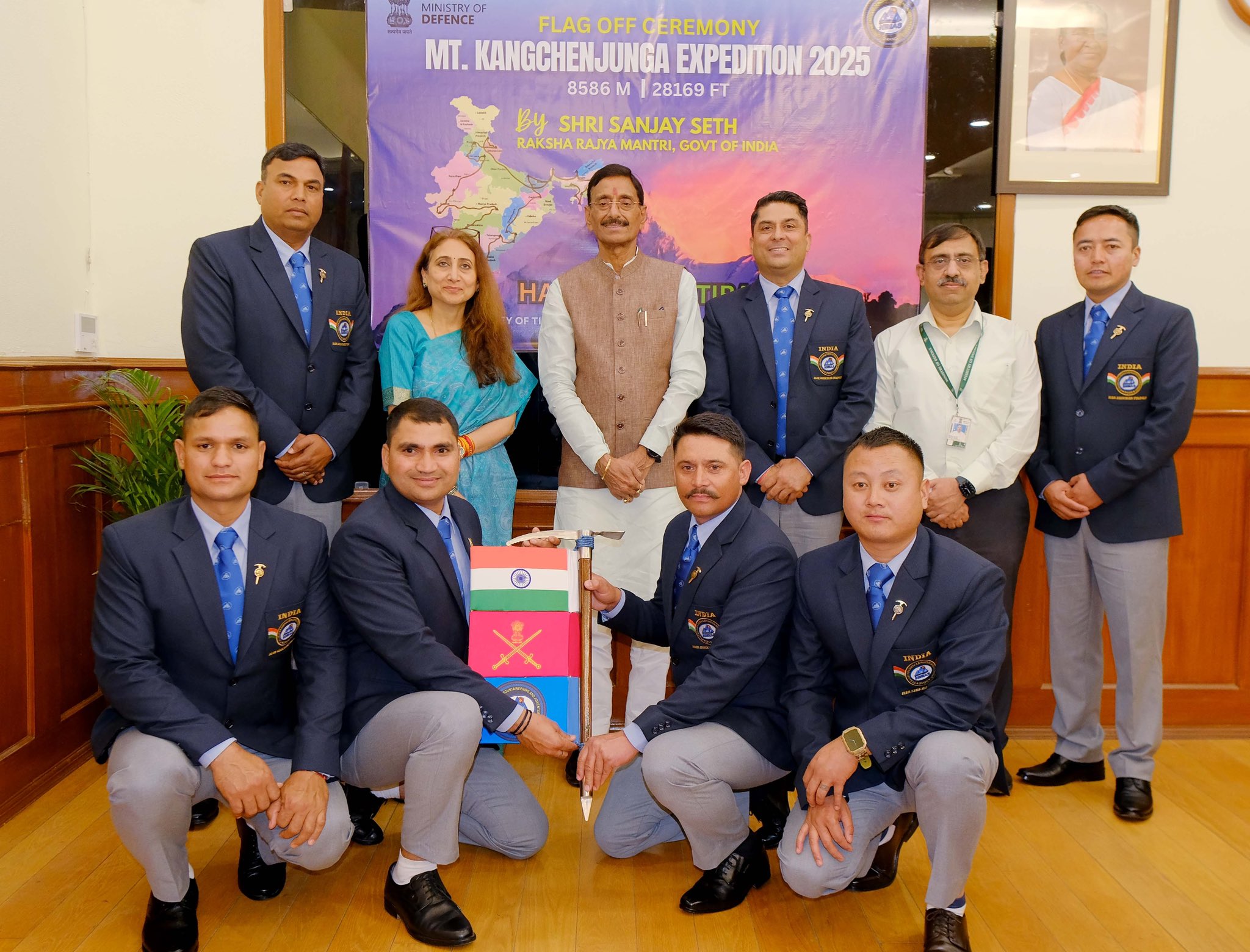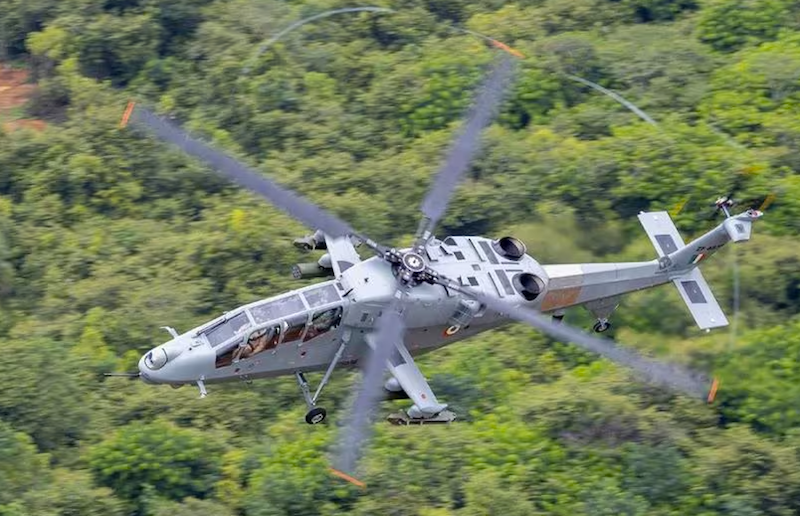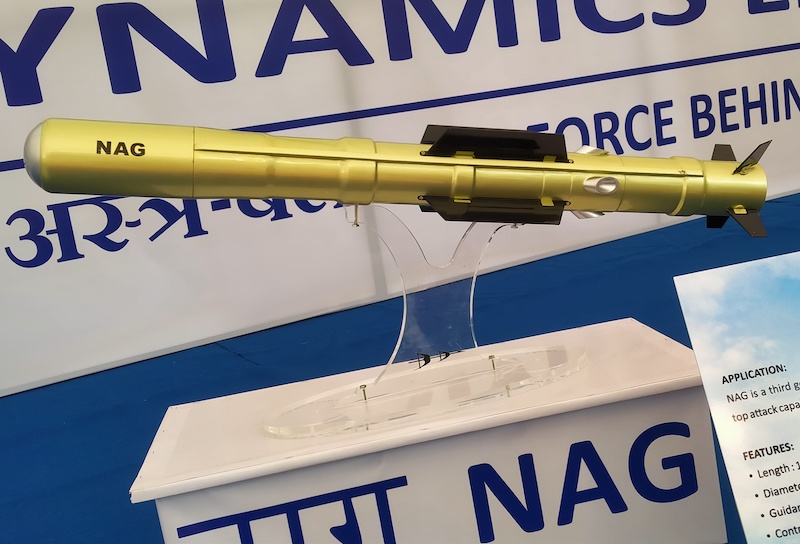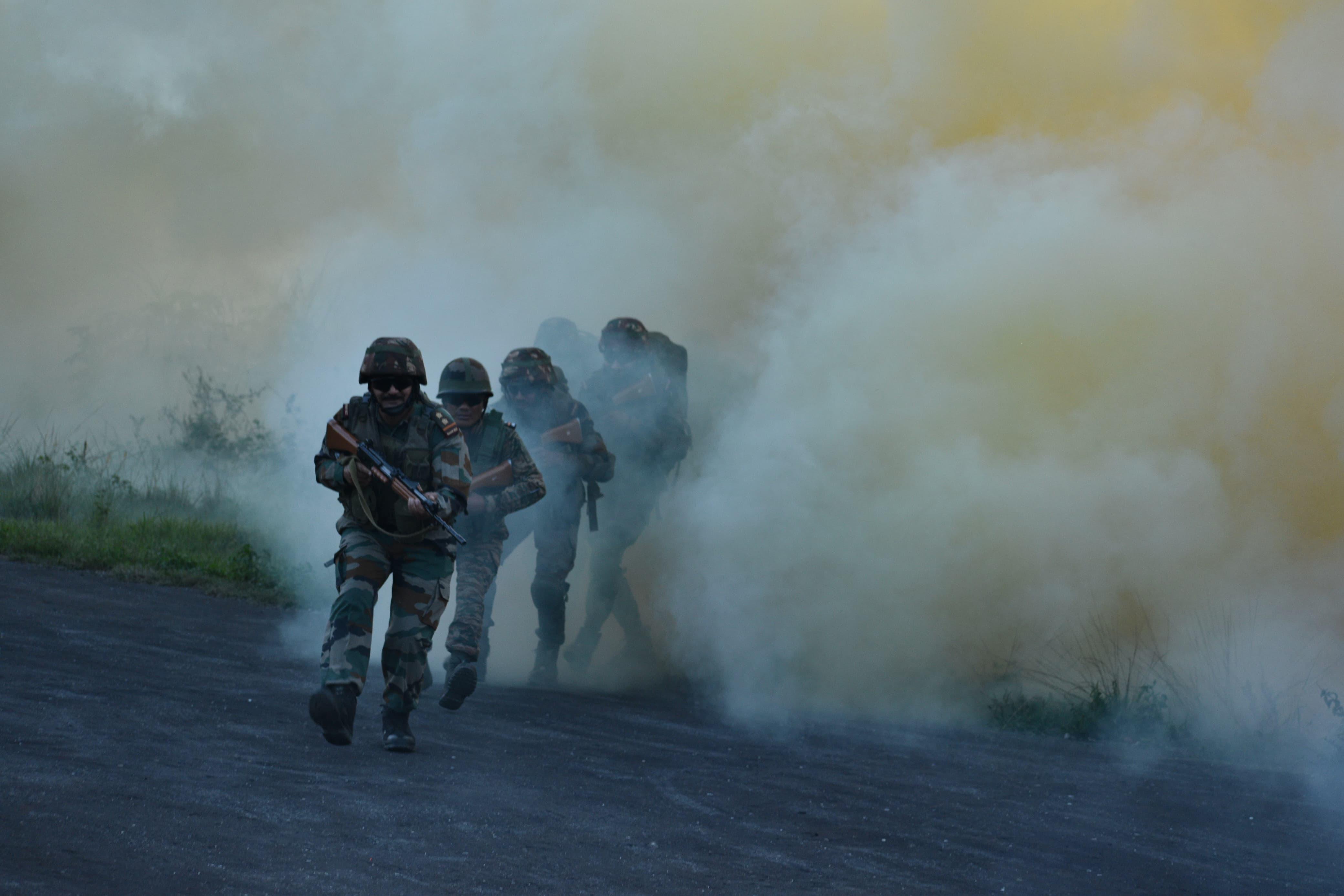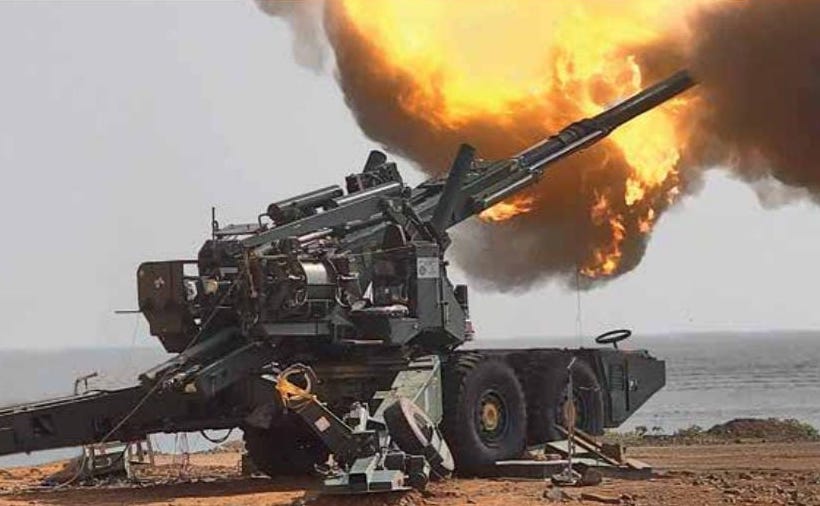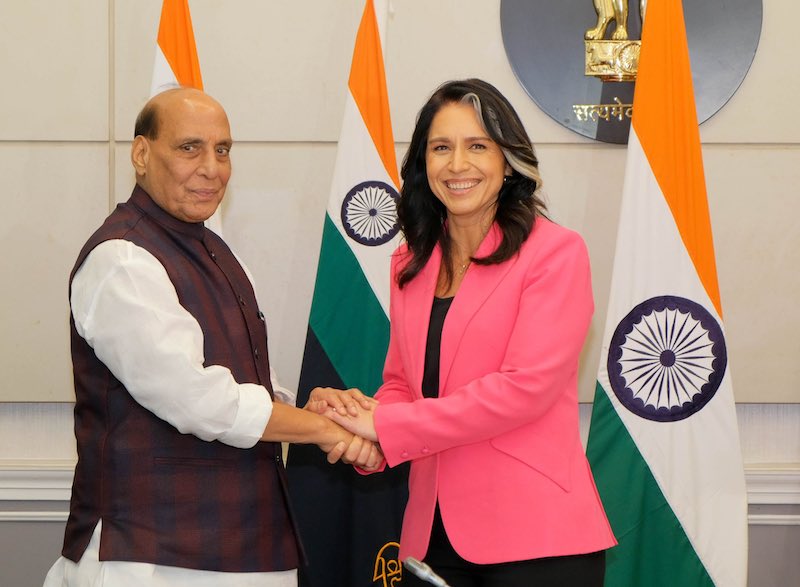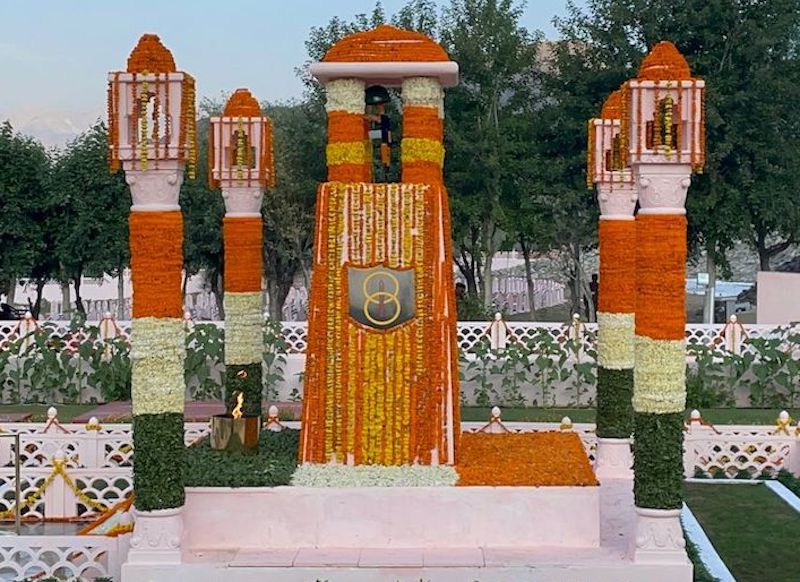 The Kargil War Memorial at Dras, Ladakh. (Photo: India Sentinels)
The Kargil War Memorial at Dras, Ladakh. (Photo: India Sentinels)
New Delhi: India commemorated the 25th anniversary of Kargil Vijay Diwas, a solemn occasion to honour the brave soldiers who laid down their lives defending the nation’s sovereignty in the 1999 Kargil war.
The nation came to a standstill as it paid tribute to the indomitable spirit of the armed forces, who successfully pushed back Pakistani intruders from the icy heights of the Kargil and Dras sectors in Ladakh. The two-month-long conflict, codenamed Operation Vijay the Indian Army and Safed Sagar by the Indian Air Force, resulted in the loss of over 500 Indian soldiers who were killed in action.
The prime minister, Narendra Modi, led the nation in paying homage to the fallen heroes at the Kargil War Memorial in Dras, Ladakh.
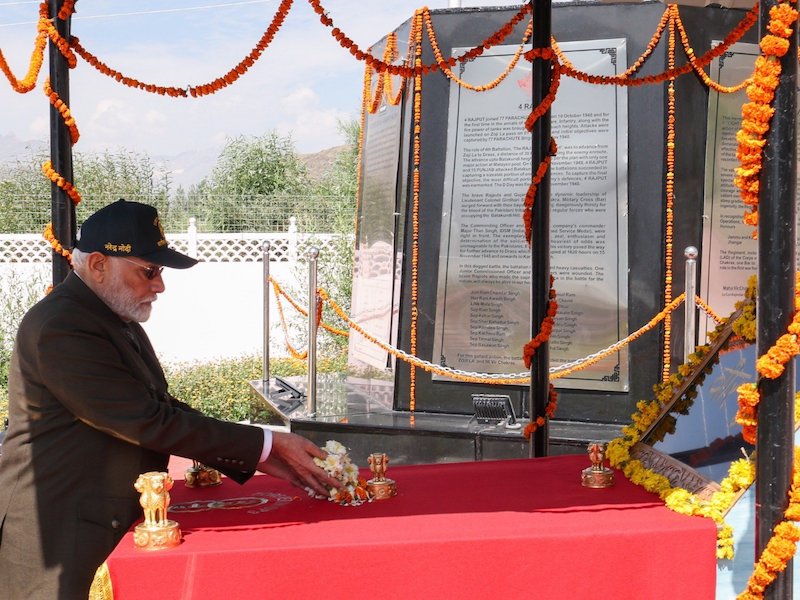 Narendra Modi paying tributes to the soldiers KIA during the Kargil war at the Kargil War Memorial at Dras, Ladakh. (Photo: X/@narendramodi)
Narendra Modi paying tributes to the soldiers KIA during the Kargil war at the Kargil War Memorial at Dras, Ladakh. (Photo: X/@narendramodi)
Addressing the nation, the prime minister emphasised the importance of ensuring India’s security and territorial integrity. He underscored that the Indian Army represents the faith of 140 crore countrymen. “Our armed forces are always prepared to protect the nation’s sovereignty,” he said.
Modi hailed the sacrifices of the soldiers and underscored the government’s commitment to the development of Jammu & Kashmir. He highlighted the progress made in the region since the abrogation of Article 370 in 2019, asserting that the erstwhile state is now on the path to a brighter future.
“In a few days, on August 5, it will be five years since we resolved to establish a new Jammu & Kashmir. Today, we are reaping the fruits of those efforts. Development, peace and progress are visible in the region,” Modi said.
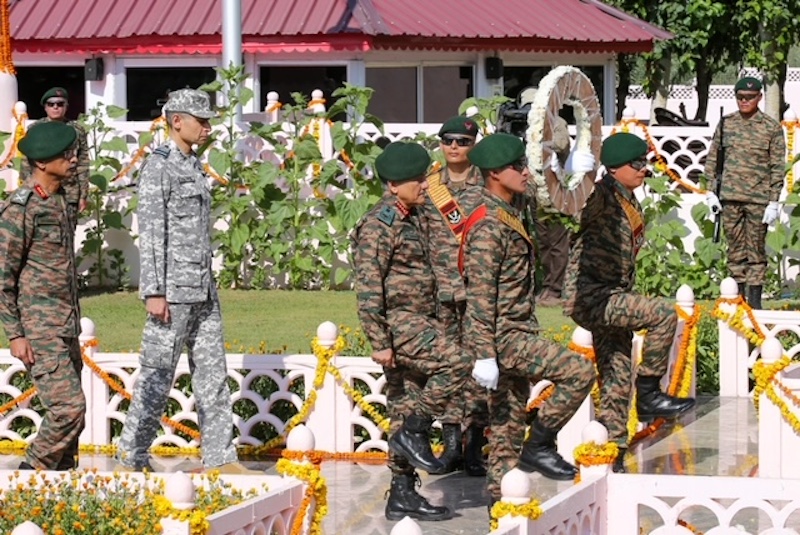 CDS General Anil Chauhan laying a wreath at the Kargil War Memorial, Dras, Ladakh, on July 26, 2024. (Photo via special arrangement.)
CDS General Anil Chauhan laying a wreath at the Kargil War Memorial, Dras, Ladakh, on July 26, 2024. (Photo via special arrangement.)
Modi also sent a strong warning to Pakistan. He said the Army will crush terror emanating from that country with full might while reminding it of its past defeats in wars with India. He said, “I want to tell them (Pakistan) that their sinister plans will never succeed. Past attempts made by Pakistan have failed. But it has not learned anything from history. It is trying to stay relevant through terrorism and proxy war.”
Modi assured that India’s soldiers would continue to combat terrorism with full force. Their dedication and sacrifice remain pivotal in safeguarding the nation’s security.
Kargil Vijay Diwas was observed with fervour across the country. Memorial services, wreath-laying ceremonies, and cultural programmes were organized to honour the soldiers who were killed in action (KIA) during the conflict.
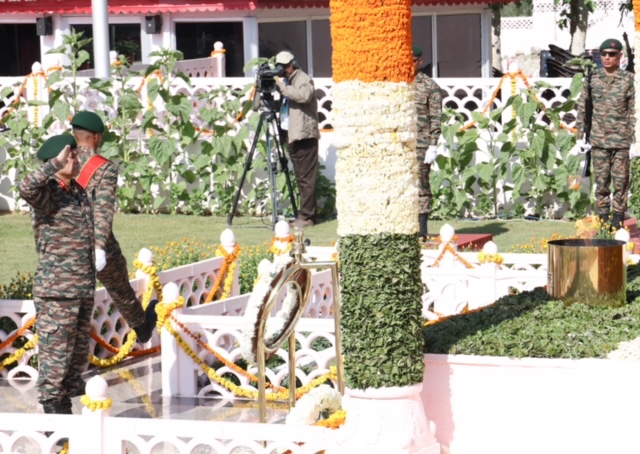 Army chief General Upendra Dwivedi paying homage to the fallen soldiers at the Kargil War Memorial, on July 26, 2024. (Photo via special arrangement.)
Army chief General Upendra Dwivedi paying homage to the fallen soldiers at the Kargil War Memorial, on July 26, 2024. (Photo via special arrangement.)
The nation also witnessed a surge of patriotic fervour, with social media platforms flooded with messages and tributes to the soldiers.
Various political leaders and dignitaries paid their respects to the fallen heroes and lauded the courage of the armed forces. Opposition leaders also joined the nation in paying homage to the fallen soldiers.
Kargil War in Brief
The Kargil War of 1999 was a significant military conflict between India and Pakistan. In May 1999, it was discovered that militants and Pakistani regular troops, disguised as militants, had infiltrated and occupied strategic positions on the Indian side of the line of control (LoC) in the Kargil district of Kashmir. This unexpected intrusion posed a serious security threat to India.
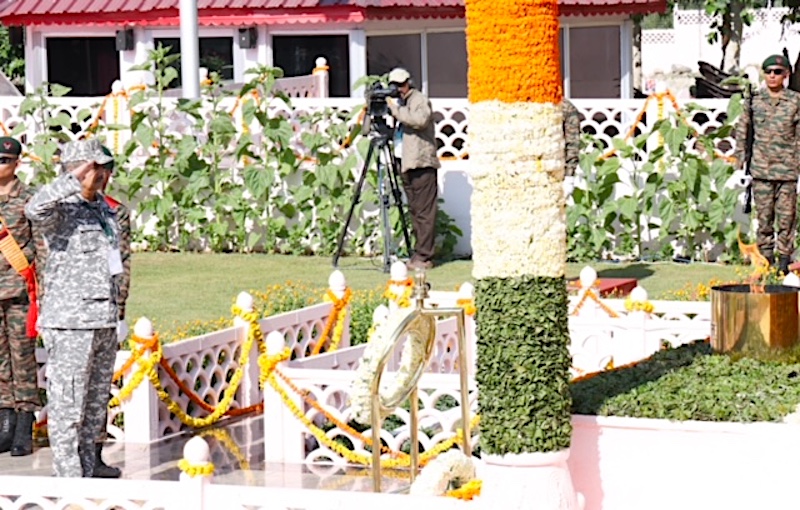 Air Force chief Air Chief Marshal Vivek Ram Chaudhari paying homage to the fallen soldiers at the Kargil War Memorial, on July 26, 2024. (Photo via special arrangement.)
Air Force chief Air Chief Marshal Vivek Ram Chaudhari paying homage to the fallen soldiers at the Kargil War Memorial, on July 26, 2024. (Photo via special arrangement.)
The Indian Army launched Operation Vijay to oust the intruders. The conflict was characterized by intense mountain warfare, with Indian soldiers displaying exceptional courage and determination in adverse conditions. The Indian Air Force also played a crucial role in providing close air support to the ground forces. The IAF named their campaign as Operation Safed Sagar.
After a gruelling two-month battle, Indian forces successfully pushed back the Pakistani intruders, regaining control of all occupied positions. The victory, achieved on July 26, 1999, is commemorated as Kargil Vijay Diwas. The war highlighted the challenges of high-altitude warfare and the importance of maintaining a strong military posture. It also underscored the nation’s resolve to protect its territorial integrity.
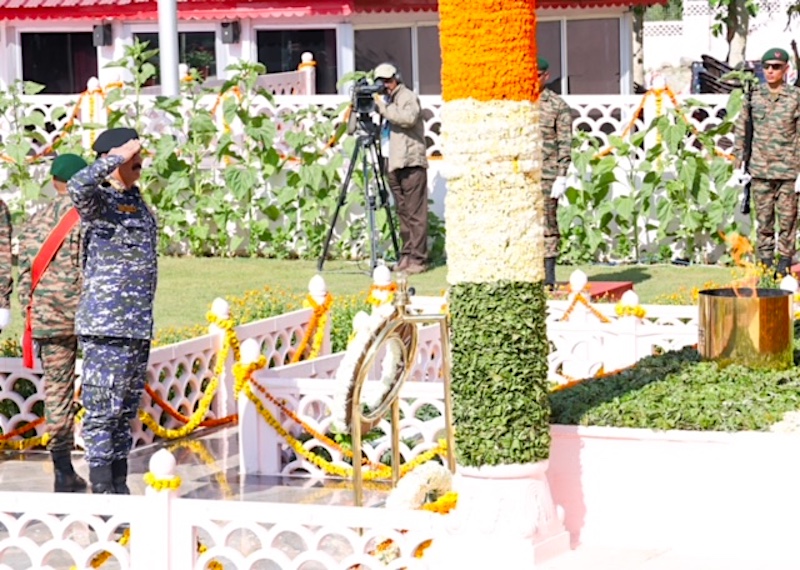 Navy chief Admiral Dinesh Kumar Tripathi paying homage to the fallen soldiers at the Kargil War Memorial, on July 26, 2024. (Photo via special arrangement.)
Navy chief Admiral Dinesh Kumar Tripathi paying homage to the fallen soldiers at the Kargil War Memorial, on July 26, 2024. (Photo via special arrangement.)
India’s victory in the 1999 Kargil War remains a watershed moment in the country’s history. The unwavering spirit of the soldiers who fought against all odds continues to inspire generations.
However, while India emerged victorious, the war resulted in significant casualties on both sides, serving as a stark reminder of the human cost of conflict.

